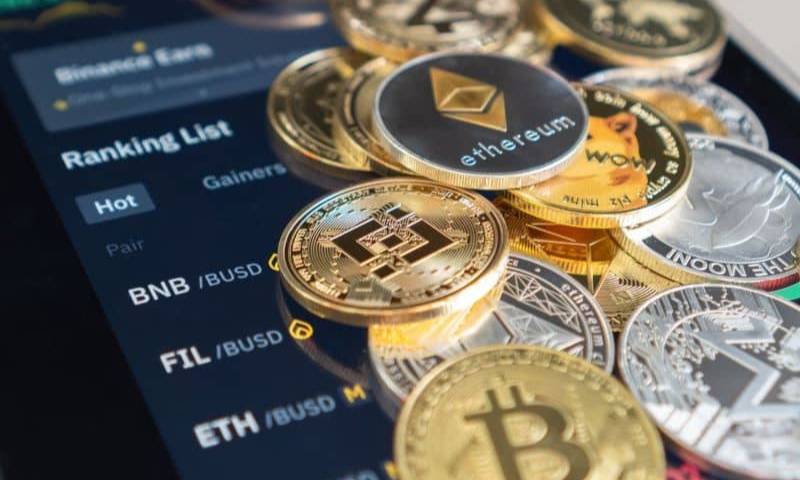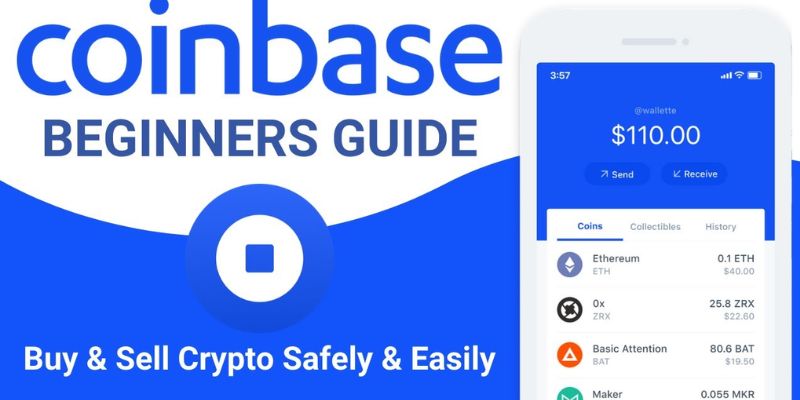What crypto tools do beginners need? It’s not just about buying low and selling high; it’s about the right tools in your digital toolkit. Imagine walking into the vast world of cryptocurrencies without a map. Overwhelming, right? That’s where I come in – to give you the must-have essentials to navigate the crypto landscape. From choosing a wallet that won’t make your head spin to making sense of market analysis tools, this guide is your starter kit to mastering digital currency. Get ready to build a solid foundation, enhance your trading, and explore advanced resources. The path to crypto mastery starts now.
Understanding the Foundations: Selecting Your First Digital Currency and Wallet
Choosing a User-Friendly Crypto Wallet
Let’s get you set up with the right tools. A crypto wallet is like a key to your digital treasure chest. It keeps your coins safe. You need one that’s simple to use. User-friendly crypto wallets are a must for anyone just starting. They should be easy to set up, with a clear layout. Think of them as your digital bank that fits in your pocket.
Mobile wallet apps for cryptocurrency are ideal for on-the-go management. They let you check your balance and make transactions anywhere. Some apps even give tips to help you along. Be sure to pick one that fits your phone, whether it’s Android or iOS.
Security is super important. You want to know your digital cash is safe. Apps with strong security features, like two-factor authentication, are the best choice. They make sure only you can access your wallet.
Analyzing Hardware Wallet Comparisons for Secure Storage
Now, we play it even safer with hardware wallets. They’re like vaults for your crypto. Hardware wallets keep your digital money offline and out of hackers’ reach. When you look at a hardware wallet comparison, check for security above all.
Also, look for one that’s easy to use. It’s no good if you can’t figure out how to check your balance. Some hardware wallets have screens to make it simple. They show you what’s happening so you can be sure everything’s in order.
When it comes to storing lots of crypto or holding it long-term, a hardware wallet is a smart move. It gives you that extra layer of protection. Plus, even if you’re not super tech-savvy, most hardware wallets come with instructions to help you get started.
Remember, every tool is a step towards mastering the world of digital currency. With the right wallet, you’re on your way to being a pro!
Building Your Investment Toolkit: Portfolio Management and Market Analysis
Utilizing Cryptocurrency Portfolio Trackers
Imagine trading without knowing your profits or losses. Seems wild, right? That’s where cryptocurrency portfolio trackers come in. They’re like digital treasure maps that guide your journey through the crypto world.
When you start trading, you’ll soon see numbers dancing around like bees. A portfolio tracker is your net to catch the right ones. It shows your investment’s worth in real-time. How much did you put in? What’s it worth now? Has your digital coin stash grown? Your tracker answers these questions with ease.
Some trackers can even pull data from wallets and exchanges everywhere. This nifty feature means that you can see everything together. It’s like having your whole digital money world in one place.
And don’t worry, they are easy to use. Even if you’re new to the game, you won’t get lost. Most of these trackers have clear, simple menus. They make it easy to see your gains or losses. With them, you can play the crypto game like a pro.
Navigating Crypto Market Analysis Tools and Real-Time Crypto Price Charts
Now, imagine you’re a captain at sea. You need good tools to read the stars and plot your course. The same is true in the digital sea of crypto. Market analysis tools are your stars.
These tools track prices of various cryptocurrencies around the clock. They tell you when your digital coin is up or down. This information can help you make smart moves. Like knowing when to buy a coin that could sail up in value, or when to avoid one that might sink.
Real-time price charts are the maps that show you where you are. These charts let you see price patterns. Some charts can get complex, but you don’t need a PhD to read them. Look for big shifts up or down. That might mean something’s happening in the market.
Charts help you see the rhythm of your cryptos. It’s like watching a piano’s keys move with the music. When you see the patterns, you can play along. You can decide when to buy or sell, dance fast or slow.
Yet how do you find the right charts? There are many around. Look for charts with easy-to-understand visuals. Websites like CoinMarketCap or CoinGecko serve them up like hotcakes, fresh and ready to help.
These charts get their info from exchanges, pulling in data by the second. All of this helps you to see where your crypto boat is headed. With the right tools, you can sail the crypto seas like a seasoned sailor.
Remember, the right tools – trackers and charts – make all the difference. They give you the power to watch your crypto garden grow and to plot your course through the open market sea. With them, you’re not just floating around – you’re on an epic voyage to treasure island.
Enhancing Your Trading Skills: Platforms, Strategies, and Community Insights
Starting with Cryptocurrency Trading Platforms for Newbies
Finding your way in the crypto world starts with where you buy and sell. Crypto trading platforms for newbies should be easy and safe to use. Search for platforms known for top exchange security features. This will guard your money from hackers.
An example might help. Let’s say you pick a platform. Ask yourself, “Does it use two-factor authentication (2FA)? Does it insure user funds?” If yes, you’re on the right track. Such security measures are first steps to protect your trades.
After choosing a platform, master it. Learn to read the dashboard and set up buy or sell orders. Practice with small amounts before handling big trades.
Basic Crypto Trading Strategies and Crypto Community Engagement
Now, let’s talk strategy. When you start trading, keep it simple. Buy low, sell high – that’s the basic idea. Watch real-time crypto price charts to see when prices drop. This is your chance to buy. Then, patient as you are, wait for the value to rise before selling.
Talking to peers can also be a game-changer. Join online crypto communities and forums to learn from others. They’re packed with folks sharing tips and news. It’s like a classroom where everyone wants to see you win. Force in questions and practice what they say.
Newbies should dive into reliable crypto news sources too. They’ll show you the patterns in crypto prices and news. You get to see what shakes the market. From there, you can guess better where the prices might go.
And that’s just your starting kit. It includes exchange-knowledge, tactics, and the power of community. With these, you’re set to make your mark in crypto trades. Keep learning – and soon, you’ll trade like a pro!
Exploring Advanced Crypto Resources: DeFi and Beyond
Decentralized Finance (DeFi) Tools for Beginners
New to crypto space and heard of DeFi? It stands for Decentralized Finance. Think of DeFi as the ‘do-it-yourself’ kit for finance. It lets you control your money without banks or middlemen. To start, you need user-friendly DeFi tools. The first is a good DeFi wallet. This keeps your digital coins safe. It also lets you join in DeFi activities. Next, you need to learn about DeFi platforms. These are like play zones where you can lend, borrow, or trade. All without needing a bank!
Learning Crypto Tax Implications and Risk Management Strategies
Guess what? Your crypto earnings can be taxed! It’s key to learn the tax rules in your place. Some tools help track your gains and losses. This helps when tax time hits. Now, let’s talk about risk. DeFi’s great, but it’s not all play and no work. There’s risk in trading and investing. To stay safe, you must learn risk strategies. This means, only invest what you can lose. Diversify – don’t put all your coins in one basket. Stay informed, and keep an eye on your investments. Remember, no one can predict the market 100%. But with the right tools and knowledge, you can make better choices.
In this article, we’ve covered how to kickstart your crypto journey, from picking your first digital currency and a simple wallet, to managing a portfolio and checking out market analysis tools. We also touched on how to improve your trading skills, including basic strategies and the value of community wisdom. Lastly, we explored the world of DeFi and key concepts like crypto taxes and risk management.
As you dive into the exciting world of cryptocurrency, remember the importance of starting with the basics. Pick tools that are easy to use and keep your assets safe. Watch the markets but don’t let them rule your decisions. Trade smart and always be ready to learn. And when you’re ready, DeFi and advanced strategies await. Keep these tips in mind, and you’re all set to navigate the crypto space with confidence. Happy trading!
Q&A :
What are the essential crypto tools for a beginner?
When venturing into the world of cryptocurrency, beginners should equip themselves with a set of essential tools. These include a reliable cryptocurrency wallet for storing digital assets, an account with a reputable cryptocurrency exchange for buying and selling coins, a portfolio tracker to monitor investments, and access to educational resources like forums and news platforms for ongoing learning. Security tools such as antivirus software and a reliable VPN are also important to protect one’s investments.
Which cryptocurrency exchange is best for beginners?
For beginners, selecting a user-friendly cryptocurrency exchange is crucial. Look for exchanges that offer simplicity, ease of use, a straightforward sign-up process, strong security measures, and good customer support. Many beginners often start with popular exchanges such as Coinbase, Binance, or Kraken, as they provide educational resources to help newcomers get started along with a variety of cryptocurrencies to trade.
How do beginners keep their cryptocurrency secure?
New crypto investors should prioritize security to protect their digital assets. Beginners can keep their crypto secure by using hardware wallets, which store cryptocurrency offline making them less susceptible to hacking than online wallets. It’s also important to use strong, unique passwords for online wallets and exchange accounts and to enable two-factor authentication (2FA) where available. Regularly updating software and being aware of phishing scams are further steps to ensure crypto security.
Are there any reliable cryptocurrency price tracking tools for beginners?
Yes, there are several user-friendly and reliable cryptocurrency price tracking tools that beginners can use to monitor the market. CoinMarketCap and CoinGecko are widely used platforms that provide real-time data on prices, market caps, volume, and more. Many mobile apps are also available for on-the-go tracking, such as Blockfolio and Delta, which offer personalized portfolio monitoring and price alerts.
What education materials should beginners use to learn about cryptocurrency?
Education is key in navigating the crypto space successfully, especially for beginners. It’s advisable to consume a mix of materials for a well-rounded understanding. These can include online courses from platforms like Coursera or Udemy, e-books, YouTube tutorials from reputable crypto educators, podcasts focused on cryptocurrency, and articles from trusted news sources. Engaging in community discussions on forums like Reddit’s r/Cryptocurrency or Bitcointalk can also provide insights from more experienced crypto enthusiasts.






